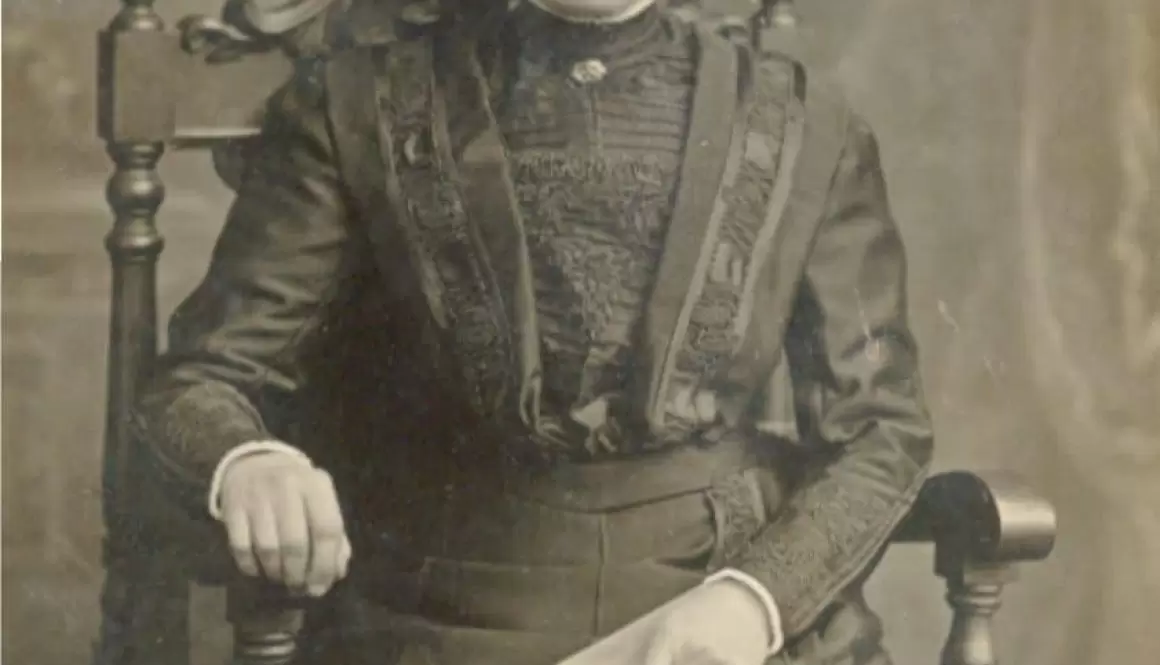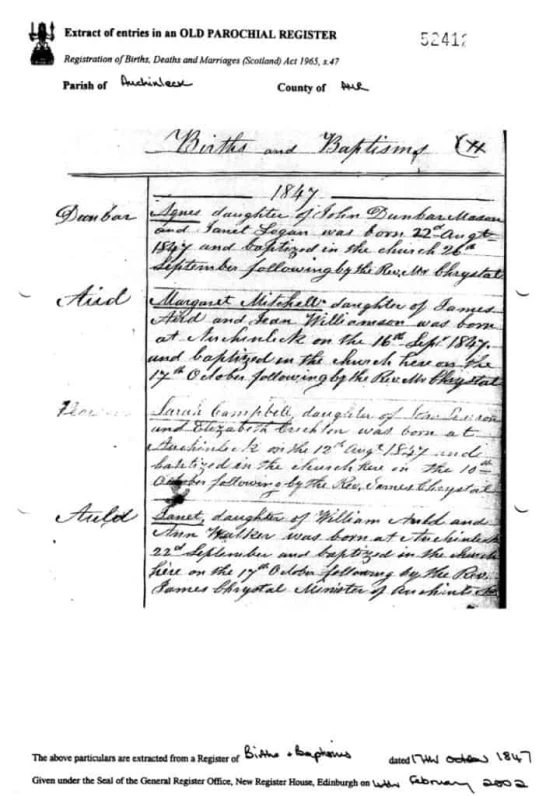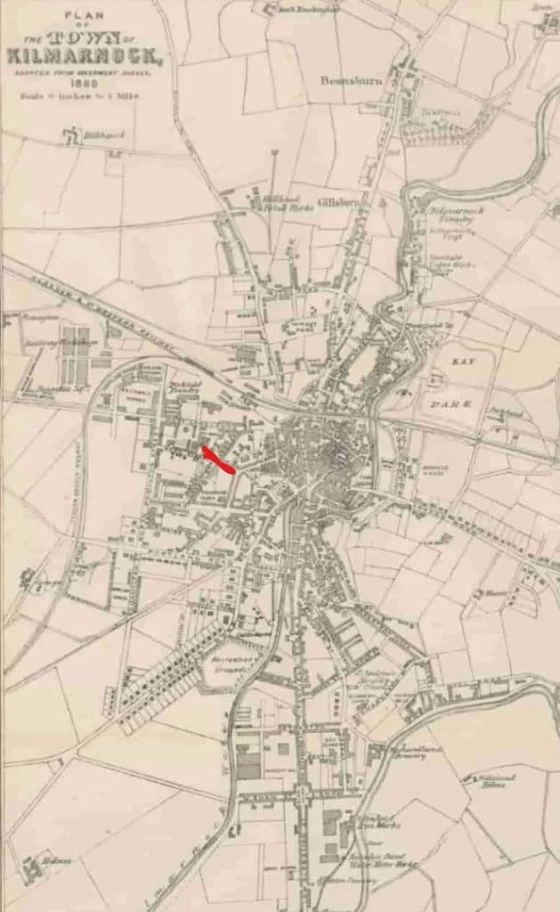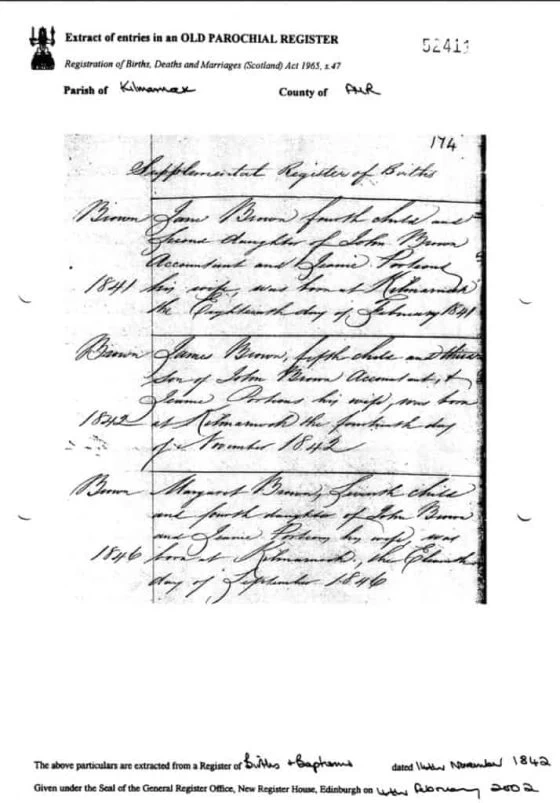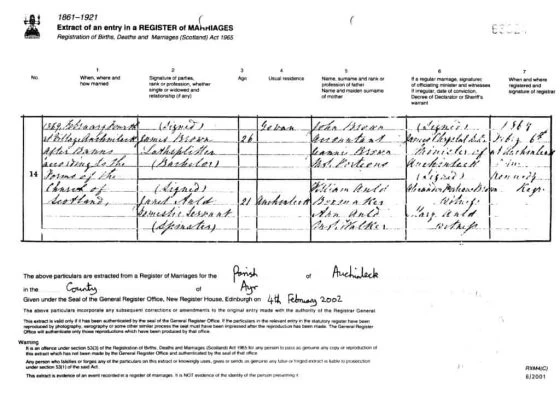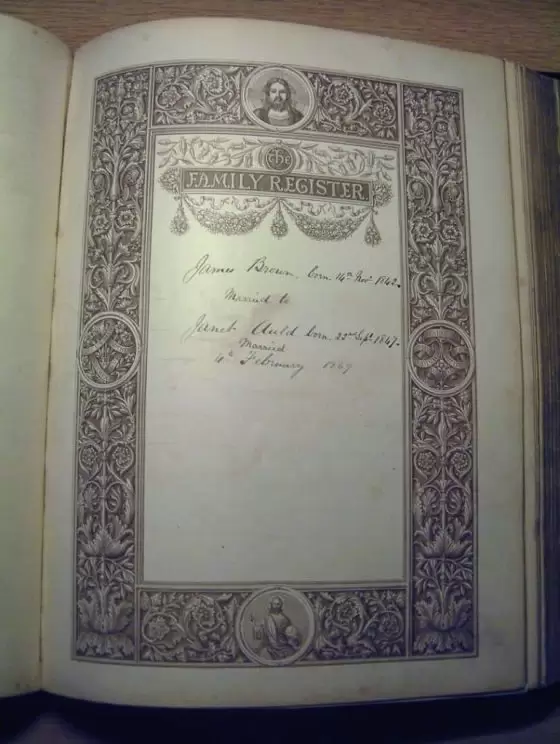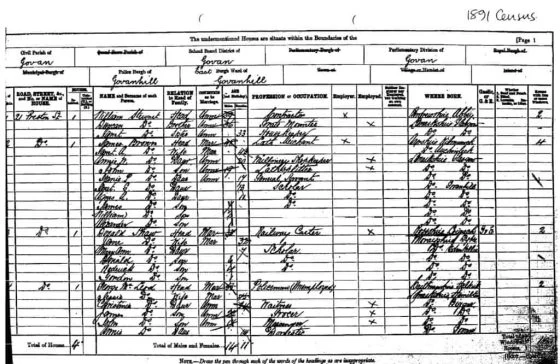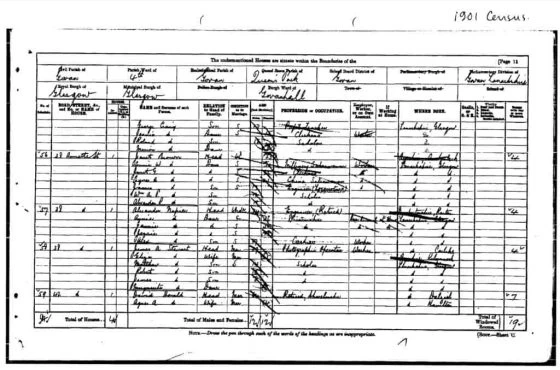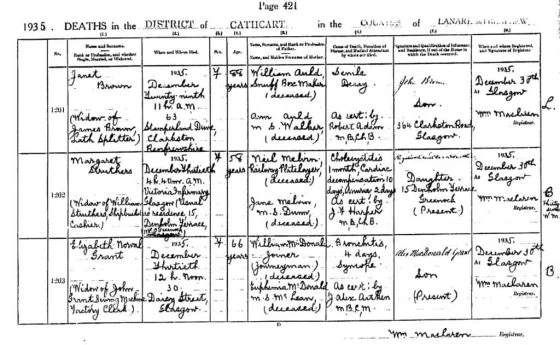James Brown and Janet Auld
James Brown and Janet Auld
James Brown
James was born in Kilmarnock, Ayrshire, Scotland on 14 November 1842. His parents were John Brown and Jeannie Porteous from Kilmarnock. Their story is told on a separate page.
Janet Auld
Janet Auld was born in Auchinleck, East Ayrshire, Scotland on 22 September 1847. Her parents were William Auld and Ann Walker of Auchinleck. Their story is told on a separate page.
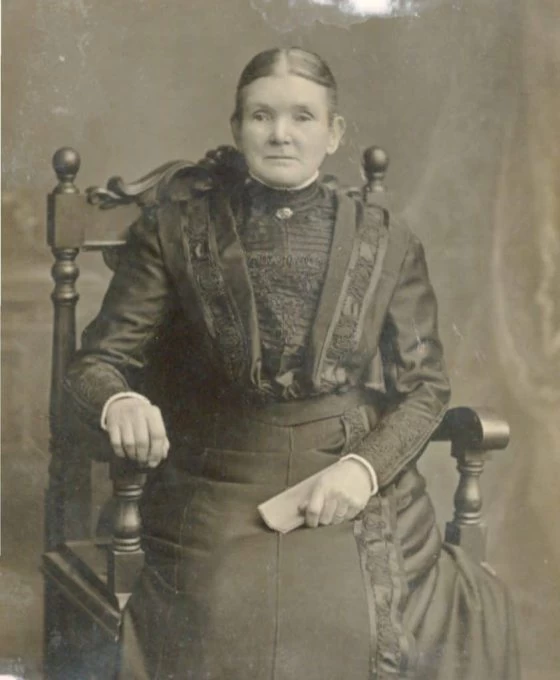
Janet Auld
Janet was born and brought up in Auchinleck where her father worked as a wooden snuff box maker.
Auchinleck is in the heart of the ancient Kyle district of Scotland. The place name means “field of (flat) stones” in Scottish Gaelic, from achadh (‘field’) and leac (‘slab’). The small locality of Auchincloich has a comparable meaning.
Although record of a community exists from as early as 1239, reliable records can really only be said to date from the arrival of the Boswell family in 1504. The barony of Auchinleck had been forfeited to the crown and was granted by King James IV to his “good and faithful servant” Thomas Boswell. Surrounding the village is Auchinleck Estate, centred on Auchinleck House, past home of the lawyer, diarist and biographer James Boswell, 9th Laird of Auchinleck.
The Boswells proved to be assiduous in their estate husbandry, and by the early 1700s a viable village community and a thriving estate had begun to emerge from the surrounding barren moorland. The New Statistical Account of 1837 documents early mining and quarrying in the area which was to become the impetus for the region to boom. By 1881 the parish population had blossomed and was 6,681, four times what it had been in 1831.
Birth of Janet Auld
The illustration opposite is a copy of the Parish Register for Births and Baptisms of Auchinleck Church.
The transciption reads as follows:
“Auld – Janet, daughter of William Auld and Ann Walker was born at Auchinleck 22nd September and baptized in the church here on 17 October following, by the Rev James Chrystal, Minister of Auchinleck”.
Birth of James Brown
Opposite is an extract from the Supplemental Register of Births for the Parish of Kilmarnock.
It records the birth of James Brown and can be transcribed as follows:
“James Brown, fifth child and third son of John Brown, Accountant and Jeannie Porteous his wife at Kilmarnock, the fourteenth day of November 1842”.
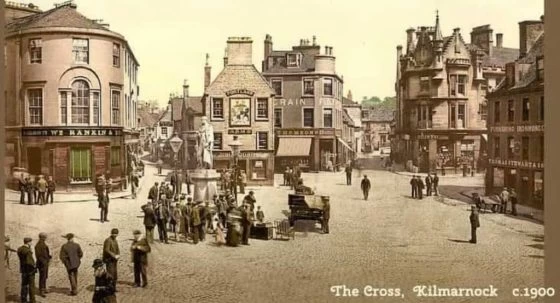
Kilmarnock
Kilmarnock Scottish Gaelic: Cill Mheàrnaig, “Marnock’s church” is a large town and former burgh in East Ayrshire, Scotland.
The first collection of work by Scottish poet Robert Burns, “Poems, Chiefly in the Scottish Dialect”, was published in Kilmarnock in 1786 by John Wilson, printer and bookseller and became known as the Kilmarnock Edition.
The internationally distributed whisky brand Johnnie Walker originated in the town in the 19th century and until 2012 was still bottled and packaged in the town at the Johnnie Walker Hill Street plant.
Marriage
According to the Register of Marriages, James Brown and Janet Auld were married in Auchinleck Church on 4 February 1869 by the Rev James Chrystal, the same minister that baptized her twenty one years previously. Janet records her occupation as a domestic servant.
James Brown records his occupation as a lathsplitter. Internal walls in houses were often constructed of lath and plaster. Walls were created by using 4″ x 2″ timber studs, the laths were then nailed to the timber studs with a small gap between each pair of laths. The resulting surface was then covered in plaster. The plaster oozed through the gap in the laths to create a mechanical key to hold it in position. The laths were generally cut from chestnut wood and it was a skilled occupation to provide the size and profile of laths.
Move to Glasgow
Some time after they were married James and Janet moved to Glasgow. They moved into what would appear to be an apartment at 21 Preston Street, in the Govanhill area of Glasgow.
James had established his business as a master lathsplitter and employed several men. The late nineteenth century was a time of rapid expansion in Glasgow and there would have been no shortage of work for those engaged in the building industry.
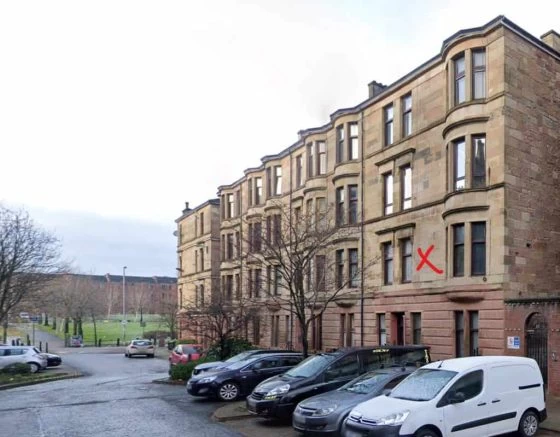
21 Preston Street, Govanhill
The door to 21 Preston Street is located centrally to the windows above, which suggests that the building was constructed with a communal entrance and staircase and subdivided into one or two apartments on each level.
The street is wide and it is located close to Queen’s Park, so it would have been quite a pleasant place to live.
38 Annette Street, Govanhill
By 1901 James Brown had moved his family of 10 children including my grandmother Agnes, to 38 Annette Street, which looks like a single house.
It must have been quite crowded in their apartment in Preston Street for two adults and ten children.
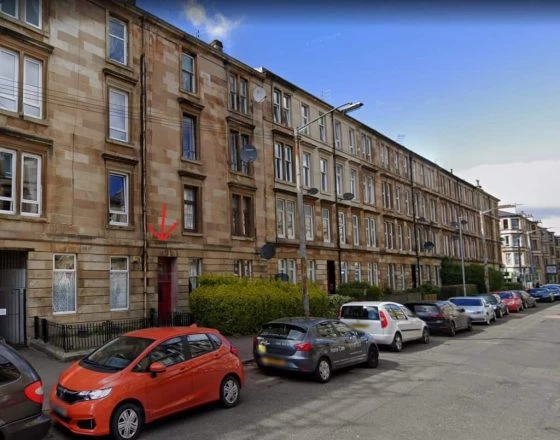
The Fire
My mother often told me the story of her grandfather’s timber yard. Apparently a ship carrying timber arrived early as the delivery had been scheduled for the following Monday, but it arrived in his timber yard on the preceding Friday. The insurance for the shipment had been arranged for the Monday.
Unfortunately, over the weekend, there was a large fire in his yard and the shipment of timber was destroyed and he was unable to claim on insurance. James Brown died of stomach cancer a few years after the fire, but he never recovered from the shock of the loss.
As a result of this story my mother and my grandmother were meticulous about making sure that all insurances were in place and fully up to date.
James Brown died on 10 September 1893.
